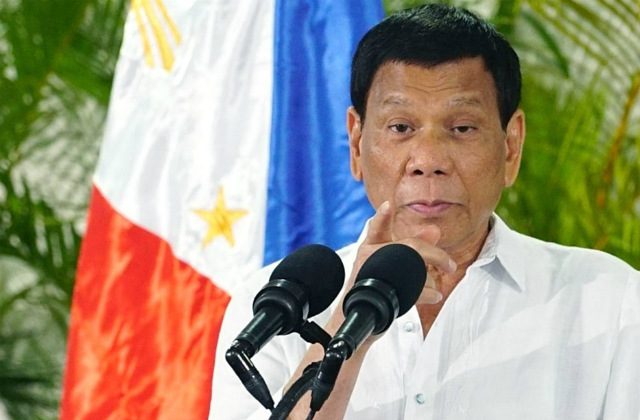SUMMARY
This is AI generated summarization, which may have errors. For context, always refer to the full article.

MANILA, Philippines – As far as Malacañang is concerned, President Rodrigo Duterte was not in any way alluded to in the homily of Manila Archbishop Luis Antonio Cardinal Tagle for the first Simbang Gabi which hit bullies who abuse their power.
Asked by reporters if the homily possibly referred to Duterte, Presidential Spokesman Salvador Panelo said, “No, because he (Duterte) doesn’t bully people.”
On Sunday, December 16, Tagle said in Filipino in the first dawn mass of the year: “Do not bully anyone. Do not use your power to become rude. Don’t use your power to pressure or coerce others. Do not use your arms to make false accusations.”
“In fact, the bullies who use power to humiliate others, they are the most afraid and insecure individuals,” he added, also in Filipino.
Panelo denied the Philippine President is a bully, insisting that his public tirades against critics were mere expressions of dislike.
“He expresses his sentiment on a particular matter, situation. He expresses dislike and he explains it,” said Duterte’s spokesman.
When he does threaten, he threatens criminals and for good reason, Panelo claimed.
“He threatens criminals, yes, to make them feel threatened and stop doing their criminal acts,” he said.
The President’s threats and verbal attacks, however, have not been limited to “criminals” but anyone who criticized his policies.
Duterte had warned he would shoot human rights activists for criticizing his campaign against illegal drugs. His fierce critic Senator Leila de Lima, the subject of his repeated tirades, has been in jail for over a year over what she called trumped-up drug charges.
He has also attempted to put another vocal critic, Senator Antonio Trillanes IV, behind bars, after accusing him of never having properly obtained amnesty for rebellion charges in 2011.
Duterte had also ranted against critical media outlets, among them Rappler, which now faced legal cases. Rappler had dismissed the tax evasion cases as “harassment” while media groups and democracy watchdogs slammed the charges as a bid to stifle dissent and create a climate of fear among Philippine media.
Malacañang had denied this, saying freedom of expression remained “robust” in the Philippines. – Rappler.com
Add a comment
How does this make you feel?
There are no comments yet. Add your comment to start the conversation.